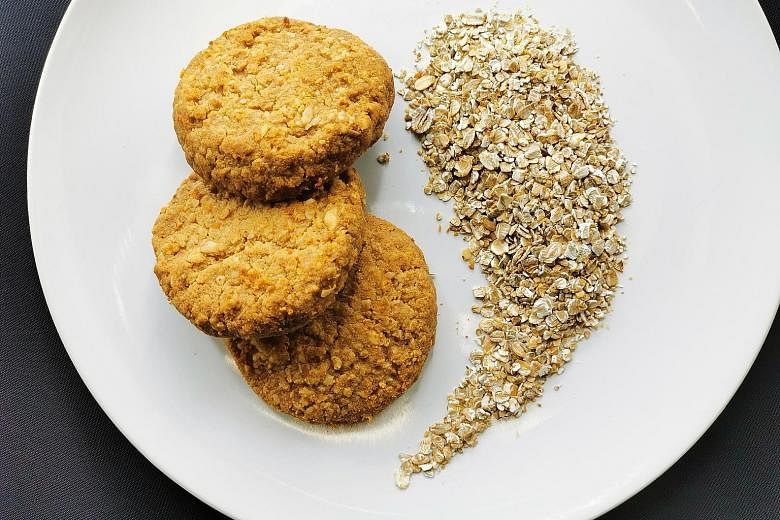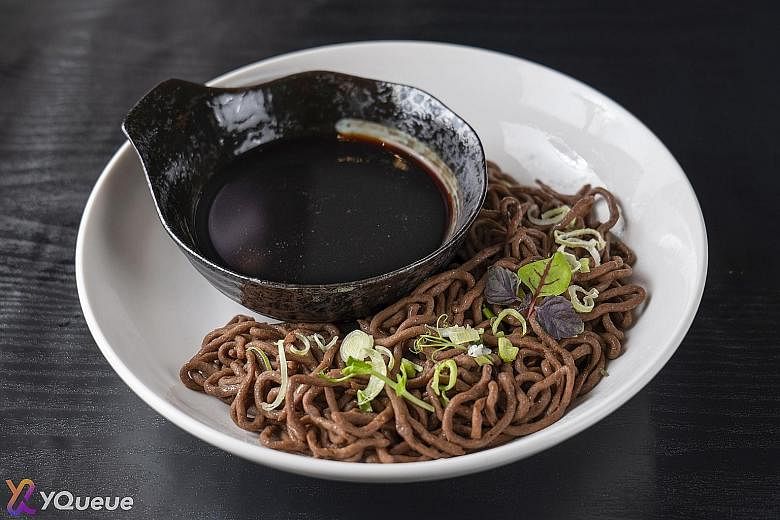You can have your cookie and eat it - sans the guilt.
A team of researchers from the Agency for Science, Technology and Research (A*Star) have created a healthier oat cookie that can improve blood glucose control and reduce the risk of developing Type 2 diabetes.
The cookie will be sold soon both as a premix and ready-to-eat snack, and its ingredients include coconut oil, cashews, and plant proteins that can slow down spikes in blood sugar levels and improve gut health, said A*Star.
The cookie is of low glycaemic index (GI), which means it releases sugars more slowly into the bloodstream, and makes you feel full for longer. Such foods also reduce the risk of weight gain, obesity and chronic diseases such as diabetes.
In a nation obsessed with salted egg fish skin and milky bubble tea, the scientists want to help Singaporeans switch to healthier snacks, while not completely turning to just fruits and plain nuts.
"In Asia, we have a limited number of foods that have a slow and prolonged release of blood glucose. These cookies particularly cater to those who like to snack without compromising on health, taste or texture," said Professor Christiani Jeyakumar Henry, senior adviser at A*Star's Singapore Institute of Food and Biotechnology Innovation (Sifbi), which developed the cookie premix.
The first people to taste the healthier treat were this year's National Day Parade organisers and participants. About 9,000 cookies were distributed to them during the past few weeks of rehearsals.
The oat cookie is one of many low-GI snacks and drinks that will be developed by Nutriient, a spin-off company from Sifbi.
Nutriient is working with food manufacturers to sell the cookies in retail stores at a price competitive to similar types of cookies, said Mr Enifoghor Kagho-Omomadia, Nutriient's chief executive. The company is also working with distributors to sell the cookie premix, which could be ready next year.
In the pipeline are other low-GI premixes such as for traditional kueh and bubble tea. These could be ready by the fourth quarter of next year, said Mr Foghor.
While low-GI foods like the cookies are healthier, they should be eaten in moderation. The amount of fat, carbohydrates and overall calories in the foods still matters.
A local foodtech start-up KosmodeHealth is also selling starchless noodles made from spent barley grains. Called W0W noodles, they tout zero cholesterol and cause no increase in blood sugar levels, despite having a texture close to that of ordinary noodles.
The noodles are sold online in 200g packs priced at $6.60.
Shabana Begum



